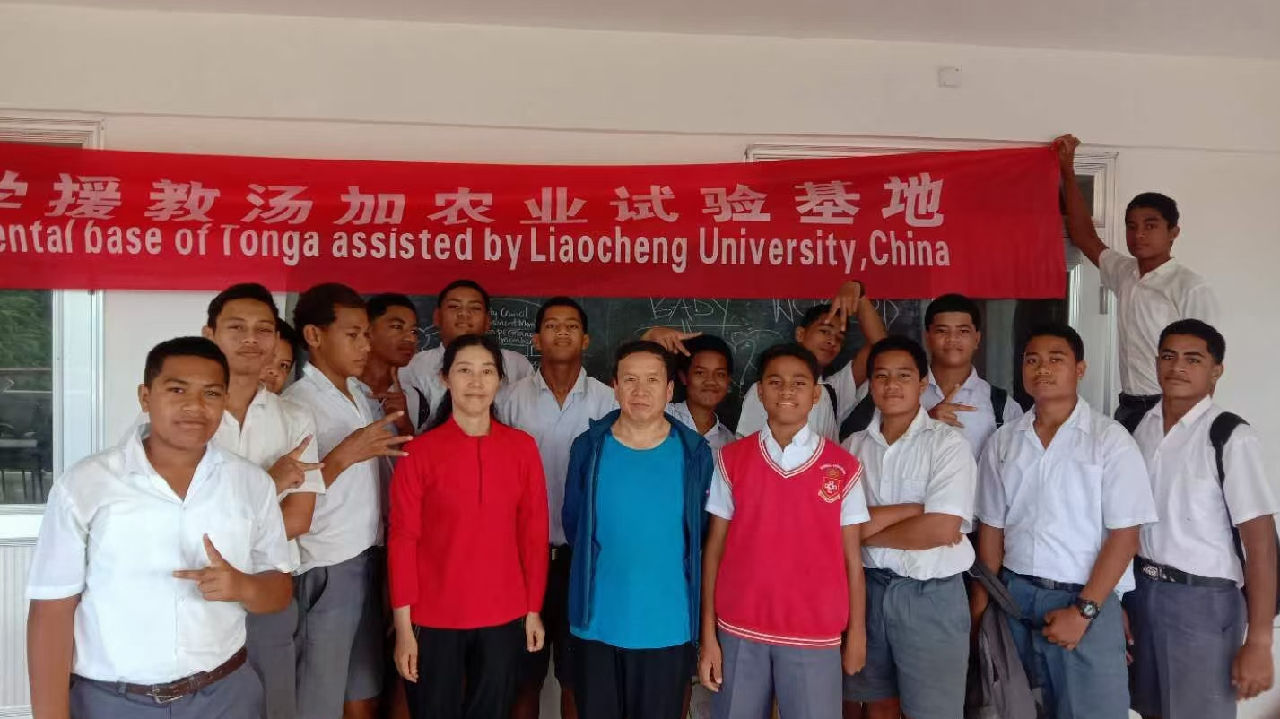Chinese Agronomy Teacher Shares Experience in Tonga and Announces Plans to Return
Chinese agronomy teacher shares his experience teaching in Tonga and reveals plans to return to the island nation.


“When we first arrived at Tonga College in 2020, the school lacked agricultural facilities and equipment. Students had to carry buckets to water the vegetables,” recalled Ren Aizhi, a dedicated agronomy teacher from Liaocheng University. “But things changed in 2021, when we successfully applied for the Ambassador Fund from the Chinese Embassy in Tonga. It helped the school build solar-powered water wells and water storage towers, purchase weeders, install drip irrigation systems, and promote water-saving and integrated water-fertilizer technologies.”
As Ren explained, the fund also enabled Tonga College to equip its classrooms with multimedia teaching tools and supply hands-on agricultural learning materials. This marked improvement in resources has allowed students to gain a more practical understanding of modern farming methods. According to Ren, the results were clear: agricultural production at the school improved significantly.
The seeds for this unique exchange were sown back in March 2018, when King Tupou VI of Tonga visited China. During this visit, the ministries of education from both countries signed a memorandum of understanding, committing to closer educational cooperation. Under this agreement, China pledged to send teachers to Tonga to support local needs, particularly in vital areas such as language and agriculture.
By 2019, two groups totaling seven teachers from Liaocheng University had traveled to Tonga to offer instruction in Chinese language, agricultural theory, and hands-on farming techniques. Ren was among the second group, bringing her expertise from the College of Agronomy as part of Tonga’s efforts to enhance local education and food security.
“At first, some students lacked motivation to learn, so we explored different ways to make the classes more engaging,” said Ren. “Gradually, more and more students became interested in what they called the ‘Chinese teachers’ vegetable garden.’” The experimental base she helped establish quickly became a favorite. Not only did it provide vegetables for the school’s cafeteria and faculty, but produce was also supplied to Tonga’s Ministry of Education and shared with students’ families.
Each year, Ren’s team trains two groups of about 50 students each, amounting to almost 300 students trained in systematic agriculture over three years. The positive impact of this work did not go unnoticed. In 2021, the Palace Office of the Kingdom of Tonga conveyed the king’s “sincere appreciation and gratitude” for the teachers’ contributions, especially after a special gift of corn from their project site was sent to His Majesty King Tupou VI.
Despite completing several years of service, Ren’s connection with Tonga remains strong. She plans to return to the island nation in August, leading a team that will focus on breeding technologies research and demonstration, along with offering short-term training for local teachers and students. New agricultural machinery—including tractors, rotary plows, cassava planters, harvesters, and building materials for seedling sheds—will also be donated, further boosting the school’s capacity to train future farmers.
“I miss the students, the people, and the sea there,” Ren reflected, expressing eagerness to reconnect with the community. Her ongoing commitment stands as a testament to the lasting bonds formed through international educational collaboration and the transformative power of shared knowledge.




